Home>diy>Building & Construction>How To Get A Job In Construction With No Experience


Building & Construction
How To Get A Job In Construction With No Experience
Modified: January 24, 2024
Learn how to break into the building construction industry and land a job even without prior experience. Get valuable tips and step-by-step guidance to kickstart your career.
(Many of the links in this article redirect to a specific reviewed product. Your purchase of these products through affiliate links helps to generate commission for Storables.com, at no extra cost. Learn more)
Introduction
Have you ever considered a career in construction but hesitated because you lack experience in the field? Don’t worry, getting a job in construction with no prior experience is absolutely possible. The construction industry is constantly in need of skilled workers, and there are plenty of opportunities for individuals who are willing to learn and work hard.
Working in construction not only offers job security but also a rewarding and fulfilling career. Whether you have a passion for building structures, working with your hands, or problem-solving, the construction industry can provide a variety of roles that match your interests and skills.
However, breaking into the construction industry without any previous experience can be challenging. Many employers in the industry prefer candidates with prior knowledge and hands-on experience. In this article, we will guide you through the steps you can take to overcome the lack of experience barrier and secure a job in construction.
Before we dive into the strategies for landing a job in construction, let’s take a look at the numerous benefits that come with a career in this dynamic industry.
Key Takeaways:
- Overcoming the lack of experience in construction is achievable through strategies like showcasing transferable skills, gaining practical experience, and highlighting motivation and willingness to learn in job applications and interviews.
- Building a successful career in construction requires perseverance, proactive networking, and continuous learning. By immersing oneself in the industry, seeking opportunities for growth, and connecting with experienced professionals, a fulfilling career in construction is within reach.
Read more: How To Get A Job In Construction
Benefits of a Career in Construction
Choosing a career in construction has a multitude of advantages. Not only does it provide job security, but it also offers numerous opportunities for growth and development. Here are some key benefits of pursuing a career in construction:
- Diverse job opportunities: The construction industry encompasses a wide range of roles and specializations. From architects and engineers to electricians and carpenters, there is a job to suit almost every skill set and interest. This diversity allows individuals to find their niche and excel in their chosen field.
- Job security: The demand for construction workers is constant. Infrastructure projects, commercial constructions, and residential developments are always in progress, ensuring a steady stream of work opportunities. This stability provides job security and reduces the risk of unemployment.
- Competitive salaries: The construction industry offers competitive wages, especially for skilled workers. As you gain experience and expertise, your earning potential increases, allowing you to enjoy a comfortable lifestyle.
- Hands-on work: If you enjoy working with your hands and being physically active, construction can be a perfect fit. Unlike desk jobs, construction roles involve practical tasks, such as building structures, operating machinery, and assembling components. This hands-on nature of the work can be rewarding and fulfilling.
- Opportunities for advancement: The construction industry values experience, skills, and dedication. As you gain proficiency in your role, there are ample opportunities for advancement. Whether it’s becoming a project manager, starting your own construction business, or moving into a specialized field, the potential for career growth is vast.
- Satisfaction of building something tangible: Working in construction allows you to witness the tangible results of your efforts. From constructing a towering skyscraper to renovating a historical building, the sense of accomplishment that comes from creating something lasting is incredibly fulfilling.
- Continuous learning: The construction industry is ever-evolving, with new technologies, materials, and building techniques being introduced regularly. This provides ample opportunities for continuous learning and personal growth. Staying up-to-date with industry trends and advancements can help you stay competitive and enhance your career prospects.
Now that you understand the benefits of pursuing a career in construction, let’s explore how you can overcome the lack of experience barrier and successfully enter the field.
Overcoming the Lack of Experience Barrier
While having no prior experience in construction may seem like a roadblock, there are several strategies that can help you overcome this obstacle and successfully enter the industry. Here are some ways to tackle the lack of experience barrier:
- Researching the industry: Start by gaining a deep understanding of the construction industry. Learn about the different sectors, job roles, and required skills. Familiarize yourself with the latest trends, technologies, and regulations. This knowledge will not only demonstrate your enthusiasm and commitment but also help you identify the areas you’re most interested in.
- Developing a strong construction resume: While you may not have direct construction experience, you can still create a compelling resume that highlights your transferable skills, education, and any relevant volunteer work or side projects. Focus on showcasing qualities such as teamwork, problem-solving, attention to detail, and the ability to work in a fast-paced environment.
- Showcasing transferable skills: Look for skills you have acquired in other jobs or experiences that are applicable to the construction industry. These can include project management, communication, leadership, organization, and critical thinking. Emphasize how these skills can be transferred and applied in a construction setting.
- Building a network in the construction industry: Networking plays a crucial role in finding job opportunities. Attend industry-related events, join professional organizations, and connect with professionals in the field through platforms like LinkedIn. Building relationships with experienced individuals can provide valuable insights, mentorship, and potential job referrals.
- Gaining practical experience through apprenticeships or internships: Many construction companies offer apprenticeship or internship programs designed to provide hands-on training and experience. Consider applying for these programs to gain practical knowledge, learn industry-specific techniques, and make valuable connections.
- Seeking entry-level construction jobs: Look for entry-level positions that require minimal experience. These positions can include general labor, construction assistant, or equipment operator. While they may not be your ultimate career goal, they can serve as stepping stones to gain experience and prove your dedication and work ethic.
- Highlighting motivation and willingness to learn: During interviews and in your application materials, emphasize your enthusiasm for the construction industry and your eagerness to learn and grow. Employers are often willing to hire individuals who demonstrate a strong work ethic, a positive attitude, and a desire to improve their skills.
- Interview tips for construction jobs: Prepare for job interviews by researching common construction interview questions and practicing your responses. Showcase your knowledge of the industry, your willingness to learn, and your strong work ethic. Additionally, dress professionally, arrive on time, and be prepared to ask thoughtful questions about the company and the role.
By implementing these strategies and demonstrating your commitment to the construction industry, you can overcome the lack of experience barrier and secure a job in this exciting field.
Now that you have an understanding of how to overcome the lack of experience barrier, let’s explore the different construction jobs you can consider.
Researching Different Construction Jobs
Before diving into the job search process, it’s important to have a clear understanding of the various construction jobs available. The construction industry offers a wide range of positions, each requiring different sets of skills and expertise. By researching and exploring different construction jobs, you can identify the roles that align with your interests and skills. Here are some commonly pursued construction jobs:
- Construction Manager: Construction managers oversee the planning, coordination, and execution of construction projects. They are responsible for budgeting, scheduling, and ensuring that projects are completed on time and within specifications.
- Architect: Architects design and plan the construction or renovation of buildings. They create blueprints, collaborate with clients, and coordinate with construction teams to ensure that the design vision is executed flawlessly.
- Civil Engineer: Civil engineers are involved in the design, construction, and maintenance of infrastructure projects such as roads, bridges, and buildings. They analyze data, prepare construction plans, and oversee project implementation.
- Electrician: Electricians install, repair, and maintain electrical systems in residential, commercial, and industrial buildings. They work with wiring, fixtures, and electrical control systems to ensure the safe and efficient operation of electrical infrastructure.
- Carpenter: Carpenters specialize in the construction, installation, and repair of wooden structures, furniture, and fixtures. They work with a variety of tools and materials to build frameworks, install cabinets, and create custom-made items.
- Plumber: Plumbers are responsible for installing and repairing plumbing systems in residential, commercial, and industrial buildings. They work with pipes, fixtures, and fittings to ensure the proper flow of water, gas, and waste materials.
- Heavy Equipment Operator: Heavy equipment operators operate machinery such as bulldozers, excavators, and cranes to perform tasks like digging trenches, moving materials, and demolishing structures. They require specialized training and licenses to operate heavy equipment.
- Construction Laborer: Construction laborers assist with various tasks on construction sites. They may clean and prepare work areas, unload and transport materials, and assist other workers with their duties. Construction laborers often work under the guidance of skilled tradespeople.
These are just a few examples of the many construction jobs available. Some positions may require specialized training, certifications, or degrees, while others may offer opportunities to learn on the job. Take the time to research each job, understand the required qualifications, and assess which roles align best with your skills and interests.
Once you have determined the construction job you are interested in pursuing, the next step is to develop a strong construction resume that showcases your transferable skills. We will explore this in the next section.
Developing a Strong Construction Resume
Your resume serves as a vital tool in the job application process, as it provides employers with a snapshot of your skills, qualifications, and experiences. When applying for a construction job, it’s essential to develop a strong and tailored resume that highlights relevant information. Here are some tips to help you create a compelling construction resume:
- Start with a clear and concise summary: Begin your resume with a brief summary statement that highlights your relevant skills, qualifications, and career goals. This summary acts as a hook to grab the attention of the hiring manager and entice them to continue reading your resume.
- Include relevant sections: Structure your resume with sections that highlight your relevant experience, education, skills, and certifications. Consider including sections such as Work Experience, Education, Skills, Certifications, and any additional sections that showcase your strengths and qualifications.
- Showcase your construction-related experience: If you have any previous construction experience, whether it’s through internships, apprenticeships, or volunteer work, highlight it in the Work Experience section. Describe your responsibilities and accomplishments in each role, emphasizing skills such as teamwork, problem-solving, attention to detail, and adherence to safety protocols.
- Highlight transferable skills: Even if you don’t have direct construction experience, you may have transferable skills that are applicable to the industry. These can include qualities such as project management, communication, leadership, organization, and critical thinking. Emphasize these skills in your resume, demonstrating how they can be applied to a construction setting.
- Include relevant education and certifications: List any formal education or training related to construction, such as degrees, diplomas, or certificates. Additionally, include any relevant certifications you have obtained, such as OSHA safety certifications or trade-specific certifications. These qualifications can demonstrate your commitment to learning and your dedication to the construction field.
- Use action verbs and quantify achievements: When describing your experience and accomplishments, use action verbs to make your statements more impactful. Additionally, whenever possible, quantify your achievements by including specific numbers, percentages, or metrics. This helps employers visualize your contributions and the impact you had in previous roles.
- Showcase strong references: Include references from previous employers or mentors who can vouch for your work ethic, skills, and aptitude for the construction industry. Ensure that you have obtained permission from your references before listing their contact information.
- Proofread and format properly: Take the time to proofread your resume carefully, checking for any grammatical or spelling errors. Format your resume in an organized and visually appealing way, using clear headings, bullet points, and consistent formatting. Additionally, ensure that your contact information is up-to-date and easily accessible.
By following these tips, you can create a strong construction resume that effectively showcases your qualifications and increases your chances of securing a construction job. Remember to customize your resume for each position you apply to, highlighting the skills and experiences that are most relevant to the specific job.
Next, let’s explore how you can effectively showcase your transferable skills in your construction resume.
Read more: How Do You Get A Job In Construction
Showcasing Transferable Skills
When applying for a construction job without direct experience in the field, it’s important to highlight your transferable skills that can be applied to the construction industry. Transferable skills are abilities and qualities that can be transferred from one job or industry to another. They demonstrate your adaptability, versatility, and potential for success in the construction field. Here are some transferable skills that are highly valued in construction:
- Teamwork: Construction projects often require collaboration and effective communication with a diverse team of professionals. Highlight your ability to work well in a team setting, communicate effectively, and contribute to collective goals.
- Problem-solving: Construction involves solving complex problems and overcoming challenges. Showcase your critical thinking skills, ability to analyze situations, and aptitude for finding innovative solutions.
- Attention to detail: Precision and accuracy are crucial in construction projects. Emphasize your ability to pay attention to detail, follow instructions meticulously, and ensure quality in your work.
- Organization and time management: Construction projects have tight schedules and multiple tasks to manage. Demonstrate your ability to prioritize tasks, meet deadlines, and effectively manage your time.
- Leadership: Even if you haven’t held a formal leadership role, highlight instances where you took charge, guided a team, or demonstrated leadership qualities. Employers value individuals who can take initiative and inspire others.
- Communication skills: Clear and effective communication is essential in construction. Showcase your strong verbal and written communication skills, emphasizing your ability to convey ideas, instructions, and concerns coherently and professionally.
- Adaptability and flexibility: Construction sites can be dynamic and ever-changing. Highlight your ability to adapt to new environments, handle unexpected situations, and quickly adjust to changing project requirements.
- Attention to safety: Safety is paramount in the construction industry. If you have experience working in environments that prioritize safety protocols, emphasize your commitment to following safety guidelines and ensuring the well-being of yourself and others.
- Technical aptitude: Construction jobs often require the use of tools, equipment, and technology. If you have experience with relevant software, machinery, or technical skills, highlight them in your resume to showcase your ability to quickly learn and utilize new technology.
When crafting your construction resume, incorporate these transferable skills into your summary statement, work experience bullet points, and skills section. Use specific examples or achievements from previous roles to demonstrate how you have applied these skills in a professional setting. By showcasing your transferable skills, you can demonstrate to potential employers that you have the qualities necessary to excel in the construction industry.
Now that you have a strong construction resume that highlights your transferable skills, let’s discuss the importance of building a network in the construction industry.
Consider starting as a laborer or apprentice to gain hands-on experience. Look for entry-level positions, highlight transferable skills, and emphasize your willingness to learn and work hard. Networking and volunteering can also help you get your foot in the door.
Building a Network in the Construction Industry
Building a strong professional network is essential for success in any industry, and the construction field is no exception. Networking allows you to connect with industry professionals, gain valuable insights, and uncover hidden job opportunities. Here are some strategies to help you build a network in the construction industry:
- Attend industry events: Make an effort to attend construction-related conferences, trade shows, and networking events in your area. These events provide valuable opportunities to meet industry professionals, learn about the latest trends, and engage in discussions about the construction field.
- Join professional organizations: Research and join professional organizations focused on the construction industry. These organizations often host networking events, workshops, and seminars that allow you to connect with like-minded individuals and stay updated on industry developments.
- Utilize online platforms: Take advantage of professional networking platforms like LinkedIn to connect with construction professionals. Join industry-specific groups, participate in discussions, and reach out to individuals who work in roles or companies that align with your career interests. Building an online presence can help you expand your network and increase your visibility in the industry.
- Seek mentorship: Identify experienced professionals in the construction industry and reach out to them for mentorship. A mentor can provide guidance, insights, and advice tailored to your career aspirations. Look for opportunities to connect with mentors through industry events, professional organizations, or mutual connections.
- Attend job fairs and career events: Job fairs and career events provide platforms for networking with construction employers and industry experts. Come prepared with copies of your resume and be ready to engage in conversations that showcase your skills and enthusiasm for the field.
- Participate in community initiatives: Engage in community initiatives that involve construction projects or collaborations. This can be volunteering for Habitat for Humanity or joining local construction-related initiatives. Not only will you gain practical experience and knowledge, but you’ll also have the opportunity to connect with professionals in the industry.
- Reach out to your existing network: Inform friends, family, and acquaintances that you are interested in a career in construction. They may have connections or know someone who can provide guidance or job opportunities. Networking opportunities can come from unexpected sources, so don’t underestimate the power of your existing network.
Building a network takes time, effort, and consistent engagement. Remember to approach networking with a genuine interest in building relationships rather than solely focusing on immediate job prospects. Be proactive, follow up with individuals you meet, and foster mutually beneficial connections.
A strong network can provide you with valuable advice, mentorship, potential job leads, and industry insights. By actively building and nurturing your network, you can increase your chances of finding job openings and gaining visibility in the construction industry.
Now that we have discussed the importance of networking, let’s explore how you can gain practical experience through apprenticeships or internships.
Gaining Practical Experience through Apprenticeships or Internships
Gaining practical experience is crucial when starting a career in the construction industry. While it may seem challenging to secure a job without prior experience, apprenticeships and internships provide excellent opportunities to learn and develop hands-on skills. Here’s how you can gain practical experience through these programs:
- Research apprenticeship programs: Apprenticeships are formal programs that combine on-the-job training with classroom instruction. Research apprenticeship programs offered by construction companies, trade unions, and vocational schools. These programs typically last several years and allow you to earn a salary while learning the ropes of the trade.
- Apply for apprenticeship positions: Once you have identified apprenticeship programs of interest, submit your application materials as per their requirements. Highlight your enthusiasm for learning, willingness to work hard, and commitment to building a career in construction. Be prepared for a competitive application process, as apprenticeship positions can be highly coveted.
- Seek out internships: Internships provide valuable hands-on experience in a shorter timeframe than apprenticeships. Look for construction companies, architecture firms, or engineering firms that offer internship opportunities. These internships can range from a few weeks to a few months and provide exposure to different aspects of the construction industry.
- Apply for construction internships: Tailor your resume and cover letter to highlight your transferable skills and your eagerness to learn and contribute to construction projects. Emphasize any relevant coursework, projects, or previous experience that demonstrate your interest in the field. Be proactive in reaching out to construction companies and expressing your interest in interning with them.
- Make the most of your apprenticeship or internship: Once you secure an apprenticeship or internship position, make the most of the opportunity. Take the initiative to learn from experienced professionals, ask questions, and seek hands-on experience whenever possible. Demonstrate your strong work ethic, willingness to learn, and dedication to the trade. Treat it as a chance to hone your skills and build a network of industry professionals.
- Seek feedback and mentorship: Throughout your apprenticeship or internship, actively seek feedback from your supervisors and mentors. Learn from their expertise and seek guidance on how to improve your skills. Building relationships with experienced professionals in the industry can provide you with valuable mentorship and invaluable career advice for your future in construction.
- Document your experience: Keep a record of your experiences, projects, and skills developed during your apprenticeship or internship. These can serve as valuable references when applying for future positions or as proof of your practical experience in the industry. Update your resume and include any notable projects or achievements during this time.
- Network with industry professionals: Use your time during your apprenticeship or internship to build connections and expand your network. Engage with colleagues, attend company events, and show enthusiasm for networking opportunities. These connections can lead to valuable job leads, recommendations, and future career opportunities in the construction industry.
Gaining practical experience through apprenticeships or internships not only provides you with hands-on training but also gives you valuable exposure to the construction industry. It allows you to apply the concepts you learn in a real-world setting, develop industry-specific skills, and build a foundation for your future career in construction.
Next, let’s discuss how you can seek entry-level construction jobs to further enhance your experience in the field.
Seeking Entry-Level Construction Jobs
Once you have acquired some foundational knowledge, skills, and practical experience in the construction industry, the next step is to seek entry-level construction jobs. These positions can provide valuable opportunities to further enhance your skills, gain industry-specific experience, and continue building your career in construction. Here are some tips to help you in your search for entry-level construction jobs:
- Research job opportunities: Begin by researching construction companies in your area and identifying entry-level positions that align with your skills and interests. Look for job postings on job boards, company websites, and industry-specific platforms. Networking with industry professionals can also lead to internal job opportunities.
- Tailor your resume and cover letter: Customize your resume and cover letter to align with the specific requirements of the entry-level job you are applying for. Highlight your relevant skills, practical experience, and any certifications or training you have obtained. Emphasize your willingness to learn, strong work ethic, and your commitment to a career in construction.
- Apply to construction companies: Submit your applications to construction companies that offer entry-level positions. Utilize online job portals, company career pages, and industry-specific job boards. Follow the application instructions carefully and ensure that your application materials are error-free and well-presented.
- Expand your search: While larger construction companies may have more formalized entry-level programs, don’t limit your search to these companies alone. Smaller construction firms, subcontractors, or specialized trade contractors also offer entry-level positions. These companies often provide hands-on experience and faster career growth opportunities.
- Consider temporary or contract positions: Temporary or contract positions can be a great way to gain exposure to different construction projects and companies. Many construction companies hire temporary workers to assist with specific projects or to cover labor shortages. Temporary positions can lead to full-time employment or provide a stepping stone to other opportunities.
- Seek feedback and learn from rejections: It’s possible that you might face rejections during your job search. If that happens, don’t be discouraged. Seek feedback from hiring managers or recruiters to learn how you can improve your application for future opportunities. Use these rejections as learning experiences to refine your approach and enhance your chances of success.
- Attend job fairs and career events: Job fairs and career events specific to the construction industry are excellent opportunities to interact with hiring managers, learn about job openings, and showcase your qualifications. Come prepared with copies of your resume and be ready to engage in conversations that demonstrate your enthusiasm and readiness to contribute to the construction industry.
- Network with industry professionals: Continually expand and nurture your professional network within the construction industry. Attend industry events, join professional associations, and connect with individuals who work in the construction field. Networking can provide you with valuable insights, recommendations, and potential job leads.
Remember, landing an entry-level construction job may require persistence and a proactive approach. Be patient, continue building your skills and experience, and remain open to different opportunities that come your way. Each step you take in the construction industry will contribute to your professional growth and progress.
Now that we have covered seeking entry-level construction jobs, let’s discuss how you can highlight your motivation and willingness to learn in your job applications and interviews.
Read more: How To Price A Job In Construction
Highlighting Motivation and Willingness to Learn
When pursuing a career in construction, it’s essential to convey your motivation and willingness to learn in your job applications and interviews. Employers value individuals who are enthusiastic, motivated, and open to continuous growth and improvement. Here’s how you can effectively highlight your motivation and willingness to learn:
- In your resume and cover letter: Emphasize your passion for the construction industry and your eagerness to contribute and learn. Use your resume and cover letter to showcase your enthusiasm and commitment to building a career in construction. Highlight any relevant coursework, projects, or extracurricular activities that demonstrate your genuine interest in the field.
- Research the company: Before attending an interview or submitting an application, thoroughly research the company and its values. Understand the projects they work on, their mission, and their company culture. Incorporate your knowledge of the company into your application materials, demonstrating your genuine interest and dedication.
- Showcase your career goals: Clearly articulating your career goals can demonstrate your motivation and commitment to long-term success in the construction industry. Discuss how the position aligns with your goals and how you plan to continuously learn and grow within the organization. Employers appreciate candidates who have a clear vision for their career path.
- Stress your passion for learning: Highlight your enthusiasm for acquiring new skills, staying up-to-date with industry trends, and your eagerness to learn from experienced professionals. Showcase any instances where you took the initiative to expand your knowledge, such as attending workshops or pursuing additional training on your own.
- Share your experiences of overcoming challenges: Discuss situations where you faced obstacles or challenges and how you demonstrated a willingness to learn and adapt. Highlight your resilience, problem-solving abilities, and determination to continuously improve. This showcases your motivation and growth mindset.
- Ask thoughtful questions: During interviews, ask thoughtful questions about the company, the role, and the potential for learning and professional development. This demonstrates your genuine interest and willingness to go above and beyond in your role. It also shows that you are committed to making a positive impact in the organization.
- Show humility and the ability to accept feedback: Assure employers that you are open to feedback and view it as an opportunity for growth. Highlight instances where you received feedback positively and used it to improve your performance. This demonstrates your willingness to learn from others and adapt to new information or perspectives.
- Express a strong work ethic: Emphasize your dedication, reliability, and the fact that you are willing to put in the hard work necessary to succeed in the construction industry. Discuss instances where you took on additional responsibilities or worked extra hours to meet project deadlines. Employers value candidates who have a strong work ethic.
By effectively showcasing your motivation and willingness to learn, you can align yourself with the values and expectations of construction employers. Emphasize your passion for the industry, your commitment to professional growth, and your eagerness to contribute to the success of the organization.
Now that we have explored how to highlight motivation and willingness to learn, let’s discuss some interview tips specifically tailored for construction jobs.
Interview Tips for Construction Jobs
Preparing for an interview in the construction industry requires specific knowledge and skills to impress potential employers. Here are some essential tips to help you succeed in your construction job interviews:
- Research the company and the role: Before the interview, thoroughly research the construction company and have a clear understanding of the specific role you are applying for. Familiarize yourself with recent projects, their company culture, and any industry trends or challenges they may face. This will demonstrate your genuine interest and enthusiasm for the company and position.
- Know the industry: Stay updated with the latest advancements, regulations, and practices in the construction industry. Be prepared to discuss industry-related topics and showcase your knowledge during the interview. Employers value candidates who are well-informed and passionate about the field.
- Highlight your relevant skills and experiences: Prepare anecdotes or examples that showcase your skills, experiences, and achievements in the construction field. Be prepared to discuss specific projects you have worked on, your role in those projects, and the outcomes you achieved. Emphasize how your skills and experiences align with the requirements of the job you are applying for.
- Showcase your problem-solving abilities: Construction projects often come with challenges and unexpected situations. Be ready to share examples of how you have successfully resolved problems in past construction projects. Demonstrate your ability to think critically, analyze situations, and find creative solutions.
- Emphasize your teamwork skills: Collaboration is essential in construction. Highlight examples of how you have effectively worked in a team environment, coordinating with colleagues, subcontractors, and clients. Discuss instances where you demonstrated strong communication, adaptability, and conflict resolution skills.
- Discuss your commitment to safety: Safety is of utmost importance in the construction industry. Emphasize your understanding of safety regulations and guidelines. Share experiences where you prioritized safety and adhered to safety protocols in previous roles. Employers need to know that you are dedicated to creating a safe working environment for yourself and others.
- Demonstrate your ability to work under pressure: Construction projects often have tight deadlines and high-pressure situations. Discuss instances where you have worked effectively under pressure, met deadlines, and managed multiple tasks simultaneously. This will show your ability to thrive in a fast-paced construction environment.
- Ask insightful questions: Be prepared with insightful questions to ask the interviewer. This demonstrates your genuine interest in the role and helps you gain a deeper understanding of the company and its expectations. Ask about future projects, opportunities for professional growth, or how the company addresses specific industry challenges.
- Dress appropriately: Dress professionally and present yourself in a neat and tidy manner. Choose attire that aligns with the company’s overall dress code. First impressions matter, and dressing professionally will help you create a positive impact.
- Be punctual and prepared: Arrive at the interview location a few minutes early to allow for any unforeseen delays. Bring multiple copies of your resume, a list of references, and any relevant certifications. Familiarize yourself with the location and time of the interview in advance to avoid any last-minute confusion.
- Follow up with a thank-you note: After the interview, send a thank-you note or email to express appreciation for the opportunity to interview. Use this as an opportunity to reiterate your interest in the position and briefly summarize why you believe you are a strong fit for the role.
By following these interview tips, you can showcase your skills, experiences, and enthusiasm for working in the construction industry. Remember to be confident, authentic, and prepared to answer both technical and behavioral questions specific to construction jobs.
Now that we have covered interview tips, let’s conclude our article on how to get a job in construction with no experience.
Conclusion
Getting a job in construction without prior experience may have its challenges, but with the right approach and determination, it is absolutely achievable. The construction industry provides a wide range of opportunities for individuals who are motivated, willing to learn, and passionate about building a successful career in this dynamic field.
Throughout this article, we have explored various strategies to help you overcome the lack of experience barrier and secure a job in construction. From researching different construction jobs to developing a strong construction resume, showcasing transferable skills, building a network, gaining practical experience through apprenticeships or internships, seeking entry-level positions, highlighting motivation and willingness to learn, and acing construction job interviews, each step is vital in your journey towards a rewarding career in construction.
Remember, building a successful career in construction takes time and perseverance. Be proactive, continue learning, and keep refining your skills and knowledge of the industry. Seek opportunities for professional growth and development, and stay current with industry trends and advancements. The more you immerse yourself in the construction field, the more chances you’ll have to advance your career and take on more fulfilling roles.
Finally, don’t underestimate the power of networking and building relationships within the construction industry. Connect with experienced professionals, join industry organizations, and participate in industry events. These connections can open doors to invaluable mentorship, job opportunities, and ongoing support as you navigate your construction career.
Now, armed with the knowledge and guidance provided in this article, you are ready to take the first steps towards securing a job in construction. With determination, enthusiasm, and a commitment to continuous learning, you can overcome the lack of experience and build a successful and fulfilling career in the construction industry.
Frequently Asked Questions about How To Get A Job In Construction With No Experience
Was this page helpful?
At Storables.com, we guarantee accurate and reliable information. Our content, validated by Expert Board Contributors, is crafted following stringent Editorial Policies. We're committed to providing you with well-researched, expert-backed insights for all your informational needs.
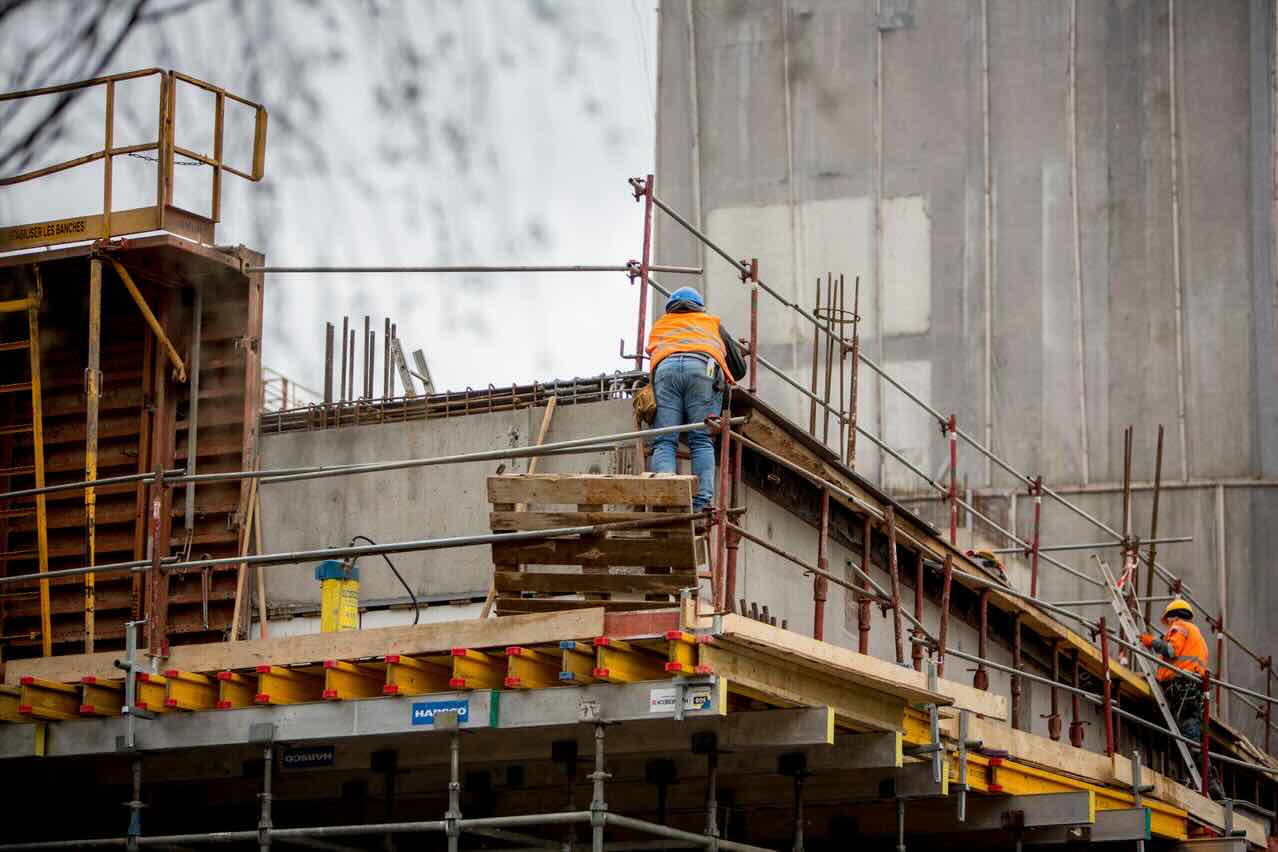
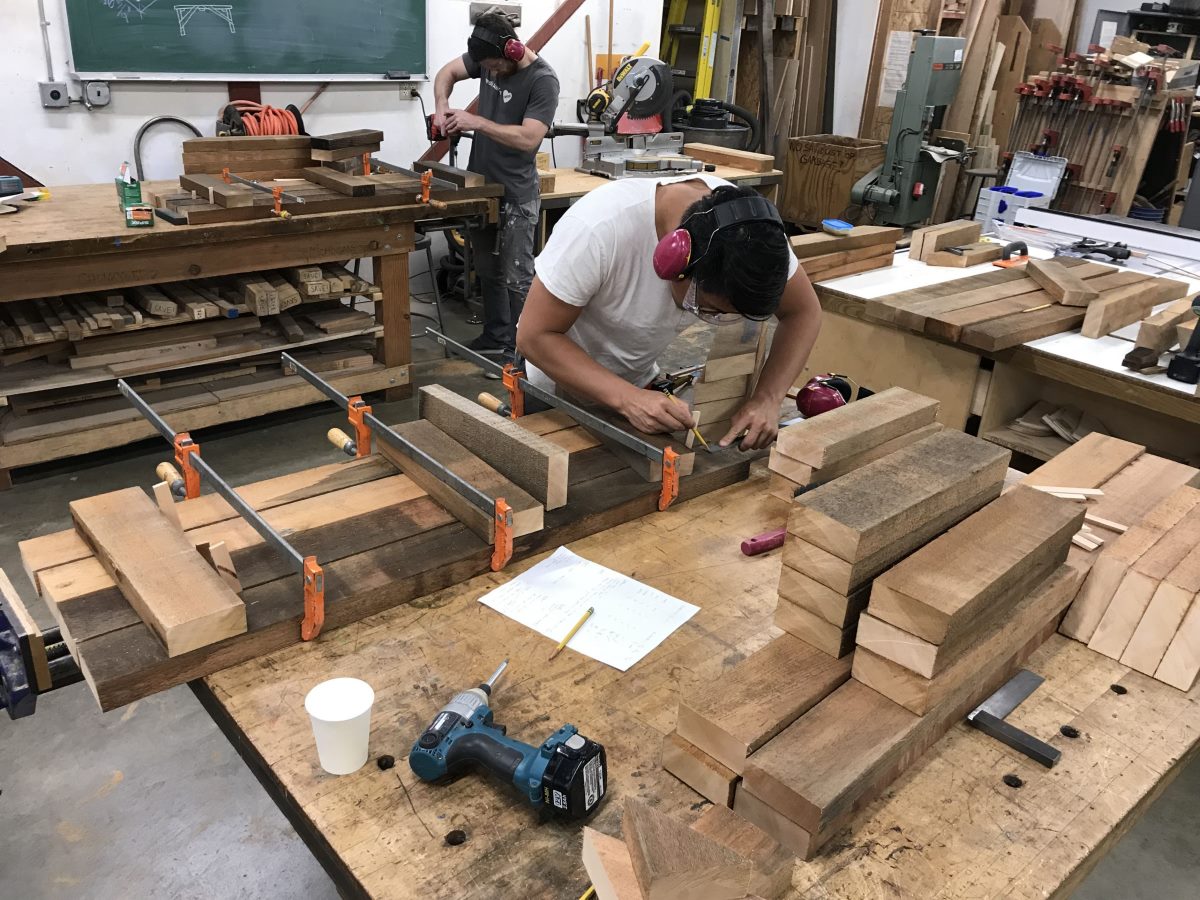


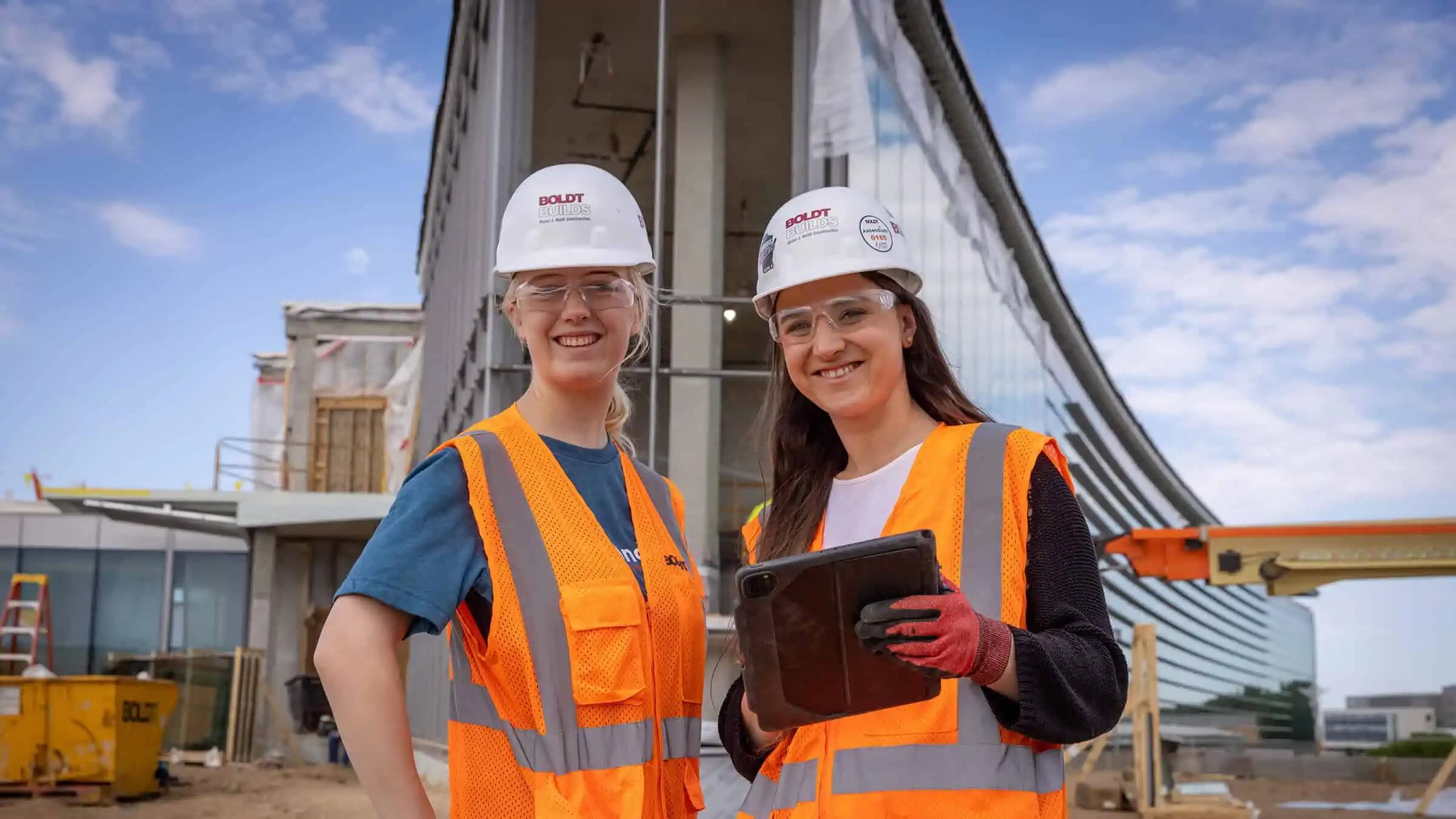
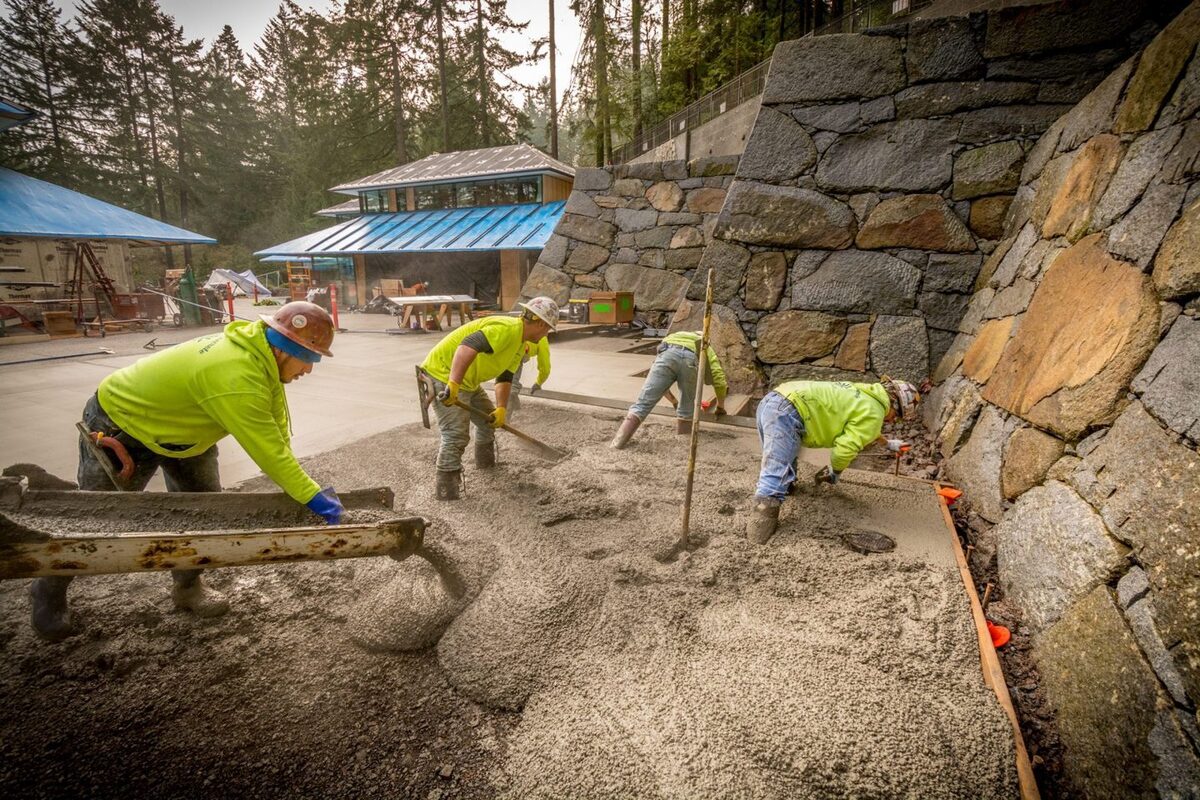




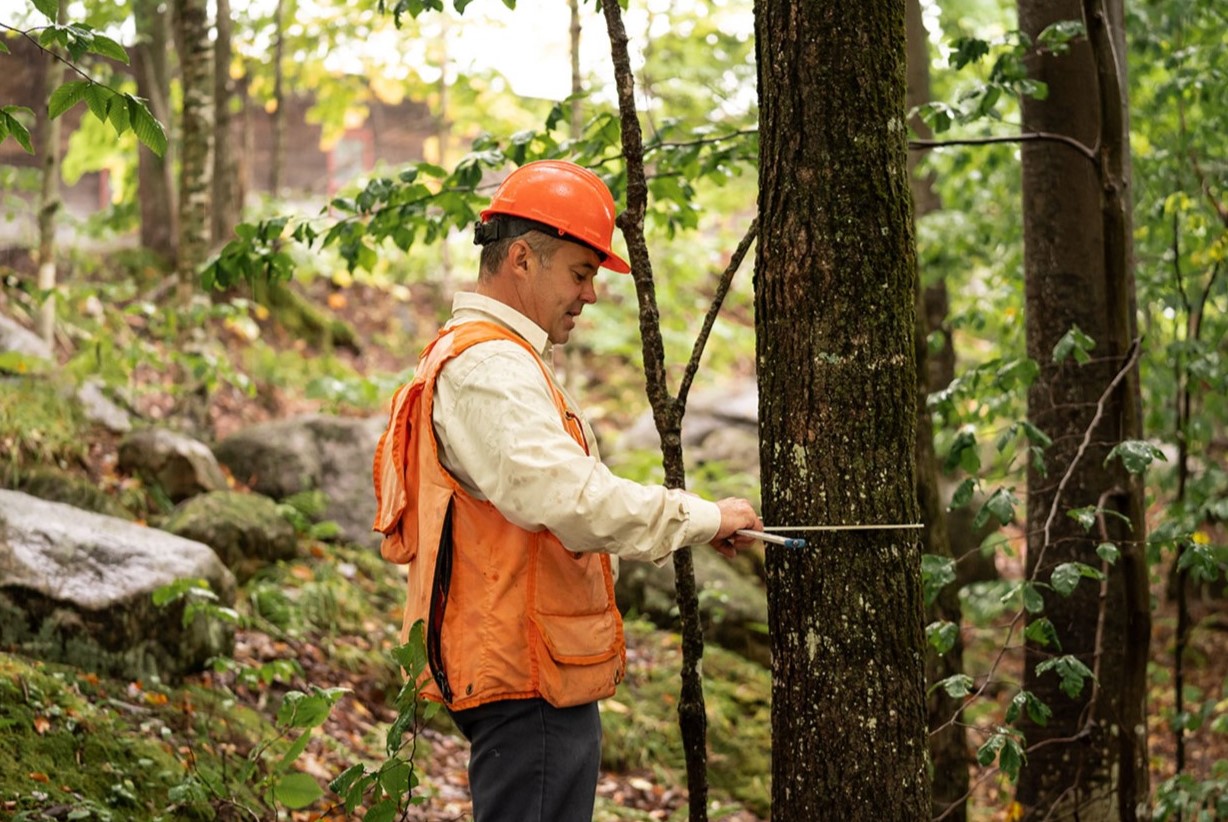



0 thoughts on “How To Get A Job In Construction With No Experience”